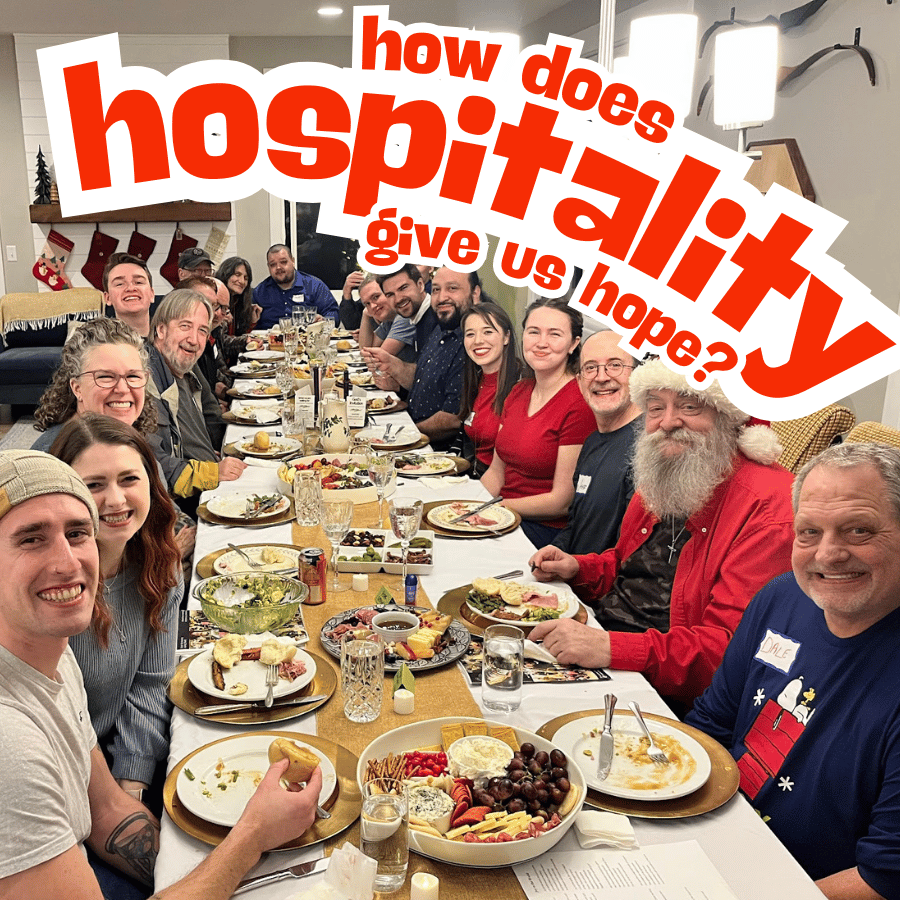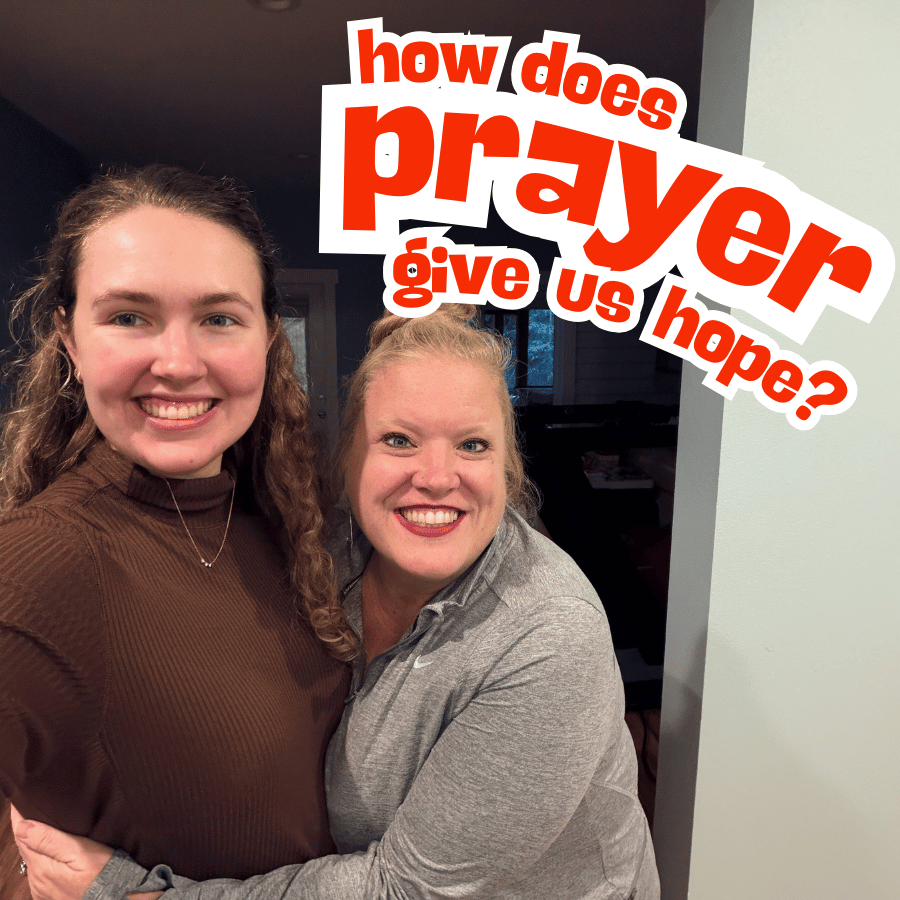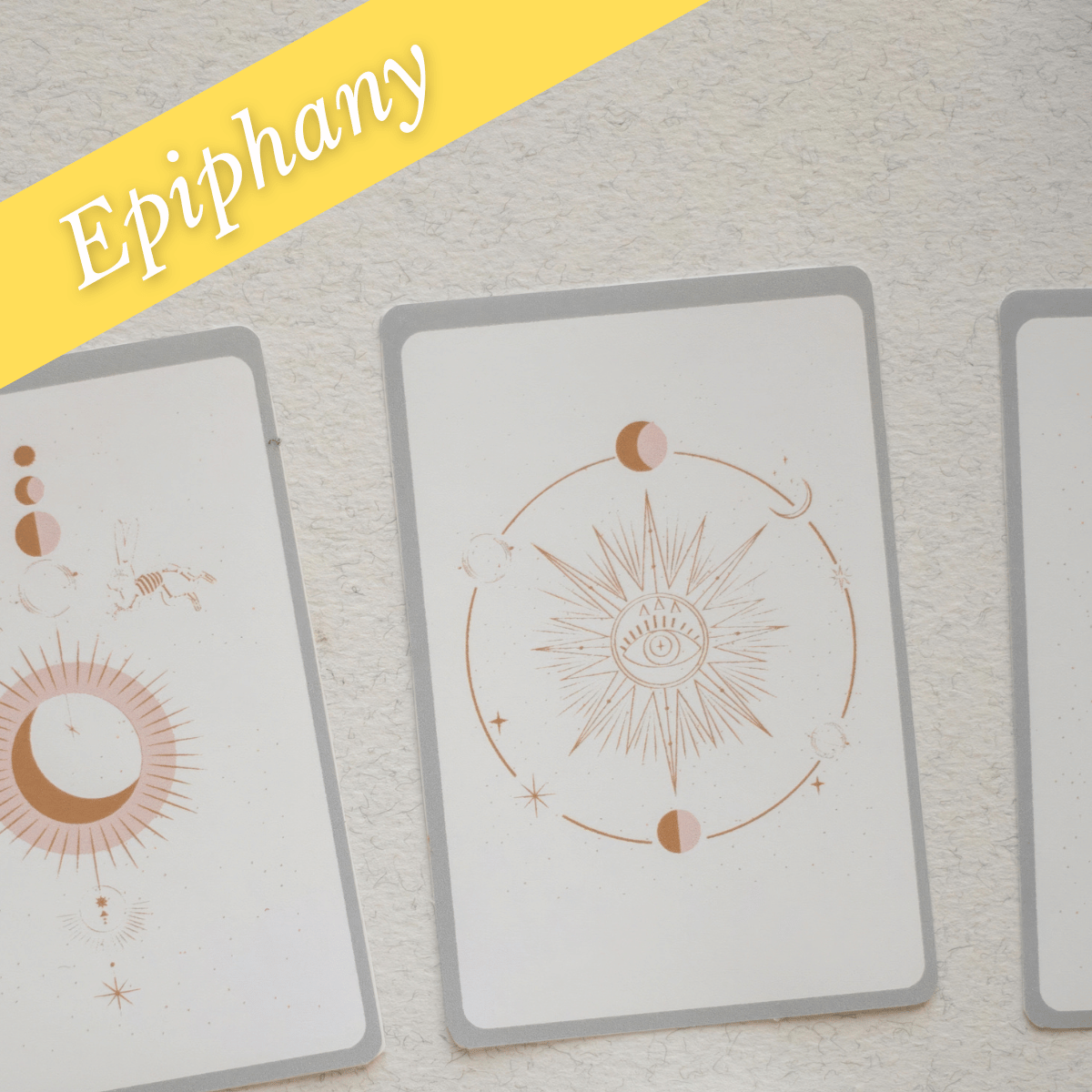My Best Life
Written by Emma McCoy
6 minute read
When someone in this culture says they aren’t religious and they don’t believe in any god, theologians have a handy (and very wordy) label for it: therapeutic moralistic deism. When I first heard this label, I had to work through it piece by piece. Therapeutic: if it feels good, then it is good to me and for me. Moralistic: all right-thinking people agree with me. Deism: if there is a god, they agree with me.
This is way more common than you might think. Let’s take a look at the cultural waters we’re swimming in…
Created with AI & Photoshop, Jessie Bloss
Live your best life and you do you and speak your truth.
We live in a culture that widely embraces feeling as the guide for life. If it feels good, it must be good. If it feels wrong, then why should you have to do it? I just want to be the best version of myself that I can possibly be, and that involves feeling good. The widespread individualism, where my own happiness and personhood is the highest good, has led to a more and more people trying to thrive in precisely the wrong ways. To illustrate how this crops up in our culture, here are a few examples:
In most coming-of-age movies, the young protagonist finds happiness by following their heart and not letting anyone tell them what to do. Independence is a good thing, and it’s certainly important for young people (like myself) to become independent and express themselves (like moving two states away and pursuing a master’s degree in writing, which is what I did), to celebrate ignoring everyone who disagrees with you in favor of what you’re feeling is, perhaps, not so helpful. That’s the “moralism” part of therapeutic moralistic deism. All right-thinking people should agree with me, and if they don’t, then they’re just holding me back and I have to cut them off.
On my social media platforms, there is a growing trend of “wellness influencers,” usually young, white women who post “day in the life” videos of them going to Pilates, drinking green juice, and promoting a variety of products dedicated to “wellness.” They advertise a version of life where you can be the best possible interaction of yourself: getting up early, reading self-help books, exercising, eating green things, dress expensively, and live in a well-organized and perfect moment. So long as you buy the products they’re advertising. This, for many people growing up on social media, is the dream. The Stanley cup, the matching athleisure set, the green juice, the headphones and sneakers and makeup organizer and skincare and etc, etc, etc. This is where the “therapeutic” comes in, because buying things and trying to make your life feel good will surely lead to actual goodness (sarcasm).
Screenshotted (and reformatted) from instagrm.com when searching #wellness on February 22, 2024. There were 69,767,115 posts with this tag and these are the top posts with this hashtag to date.
Now, these are two examples of culture promoting the “live your best life according to how you’re feeling” idea. On a slightly more benign note (or at least less overtly harmful), there are other messages that promote wellness—in itself not a bad thing. Different things promise to help you thrive as a person, whether it’s the woman dancing in a tampon commercial, Taylor Swift singing “shake it off,” or the latest juice cleanse that promises to rid you of toxins.
There’s nothing inherently wrong with using these things to thrive. I love a good Taylor Swift song as much as the next person, and I try to eat healthy and work out. But when we lean into making our lives better by buying things, singing popular songs, or trying a new diet, we’re missing something. Think about the “moralistic” part again, where all right-thinking people should agree with me. Influencers on TikTok, popular singers, coming-of-age movies, TedTalks, and advertisers teach us that we need to be supported and encouraged (good things) to the exclusion of all adversity or contradiction (bad). Think about how political ads are framed now, with candidates blasting “the other side” and using rhetoric framed around war and needing to beat the other.
In this quest to feel as good as possible, and surround ourselves with nothing but agreement, we’re missing something crucial.
Life cannot possibly be good all the time, and ignoring the parts of life that are uncomfortable: disagreement, arguments, death, grief, loss, etc, we aren’t experiencing the full breadth and width of what it means to be human. We’re ignoring a part of what it means to be alive.
You’ll be hard-pressed to find something—a billboard, a university website, a pop song, or a church website even—that talks about how lament is crucial to thrive. Lament is the engagement with grief, loss, and the knowledge that we’re all going to die one day. This definition (by no means complete) doesn’t fit in with our culture. It makes people uncomfortable.
We don’t want to talk about death or darkness.
“Thrive” products and ideas, like green juice and political ads and Pilates, are never brought anywhere close to lament, because they’re supposed to be opposites. But imagine for a moment an advertisement for Stanley cups. The commercial starts, and it opens to a woman sitting in her living room, holding her recently deceased mother’s Stanley cup and sobbing. It makes us uncomfortable to the point of it being absurd, but that’s grief. That’s lament. Something that a very alive person loved and used is left behind in death.
Created with AI & Photoshop, Jessie Bloss
Lament needs to be there for us to “be our best selves” and “live our best lives.” And I suspect the reason is because lamenting often doesn’t feel good, and that runs against the idea of therapeutic moralistic deism that I brought up earlier. So often, we think that if it feels good, it must be good, and if it doesn’t feel good, then it must not be good.
The season of Lent reveals the falseness of this. It prepares us for the hard times in life—because God knows they’ll come. It breaks the illusion that if we just try a little harder, we can keep the darkness out. Grieving for the already and the not yet is a part of being human, and it brings us together in ways we rarely expect.
The idol and lies of therapeutic moralistic deism are attractive. That’s why so many people ascribe to it, whether they realize it or not. But when we put that religion up against Jesus, it’s clear to see that one leaves us alone, and one brings us closer. One is an incomplete expression of humanity, and the other celebrates what it means to be a person.
Which are you going to choose?












3-minute read